📖Language Corner: Filipino dialects or Languages?

Hello everyone! I am back with a something interesting to know (if you're a polyglot that is). The topic is about Filipino "languages."
This all started when I found out my classmate could speak Kapampangan.
Normally I would try to learn any new language quick! But since I am older now I think studying the history and hearing it is already harder. I did some reading (just on wiki) about the Filipino languages which in total are around 200+ languages and dialects are not included.
I will share to you guys all that I found interesting and what I didn't know and also what is good to take note. Before one question turns into a thousand, I will start with what is achievable to know.
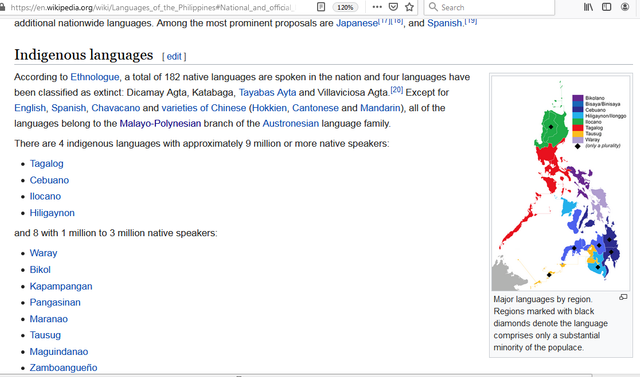
With over 200+ languages, this list cuts it short and I admit I am only acquainted with less than half of this list.
I speak only Tagalog and Cebuano and I have only heard and know words of bikolano, ilocano, Kapampangan, maranao and pangasinense.
Our Conversation
Let's get acquainted with the three languages that we will hear in the video I made.
(1) Tagalog (2) Cebuano or Bisaya (3) Kapampangan
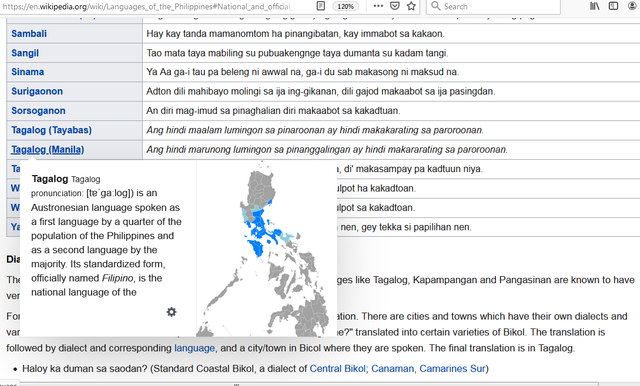
The colored part of the map is the origin but everyone speaks Tagalog in the Philippines. Very few are those who don't speak it or not good at it.
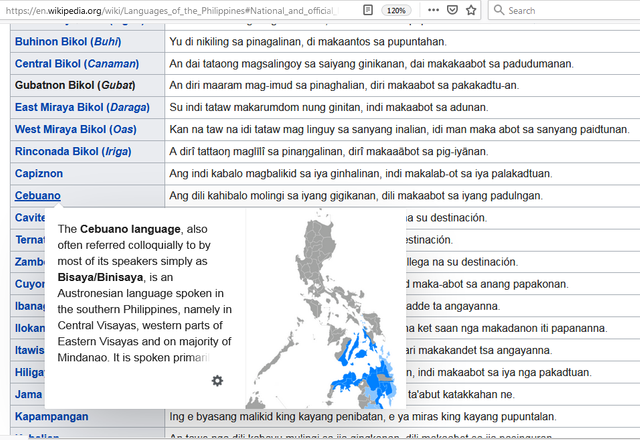
Here is for cebuano and Bisaya. I speak this.
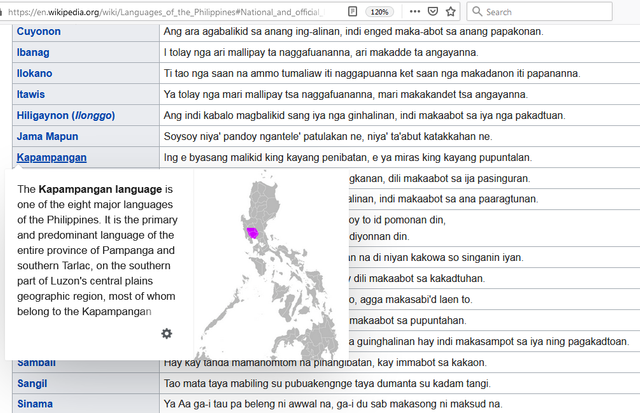
Last one is Kapampangan which we will all hear in the next part!
TAGALOG: 1. ano ang pangalan mo? (What is your name) 2. Ilang taon ka na? (How old are you?) 3. Hindi ko naiintindihan ang sinasabi mo. (I don't understand what you are saying)
BISAYA: 1. Unsay pangalan nimo? (What's your name) 2. Wala man koy ginabuhat karon (I am not doing anything now) 3. Kadungog ba ka sa akoa? (Do you hear me?)
FIRST IMPRESSION
Upon hearing Kapampangan for the first time, regardless of it being spoken in the north, I found it so weird, it sounds very much like Indonesian with a mix of the moro languages here in the Philippines.
You can see my reaction to her speaking, just smiling and laughing cause it's interesting for me!
We want more! Okay, next round, I invited James to speak and represent visayan.
Round 2
TAGALOG: 1. nandito kami sa paaralan para mag aral ng aleman. (We are here in school to study German)
BISAYA: 1. unya ikaw unsa man diay ang natun-an ninyo sa skwelahan? (And what about you guys, what have you learned in school by the way?)
After the "translation phase" we were totally amused and then wondered what if we tried to speak to each other. There would be low intelligibility rate but, okay, let's see.
Round 3!
me: anong gusto niyong pag usapan? (What do you want to talk about?)
WHAT WENT WRONG?😋
In this video James mentions what he ate for lunch which was salad which he referred to in Bisaya as "sagbot" which in Tagalog would be "damo" which sounds very awkward and funny.
SO THEN, the funniest part was Dolly saying "Damulag" which in Tagalog and Bisaya meant something like large, it meant "cow" in Kapampangan. So we were laughing because we thought it was some sort of joke type of insult calling James some sort of Big fat person instead of just a cow to describe him eating green leafy salads.
Cognates?
Cognates are words which have the same root.
Here's a very interesting chart which I found just on wiki, yay! So we see the differences of words per language and how there are minor changes (and major for some)
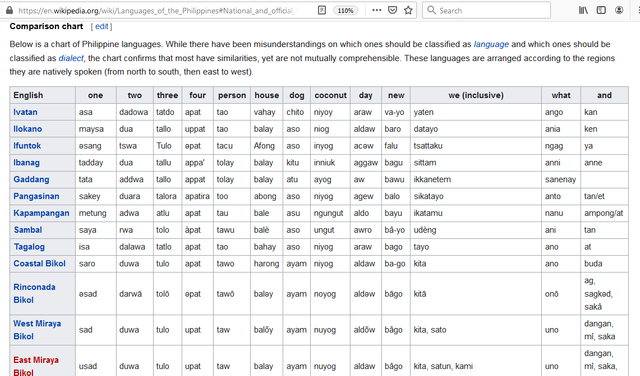
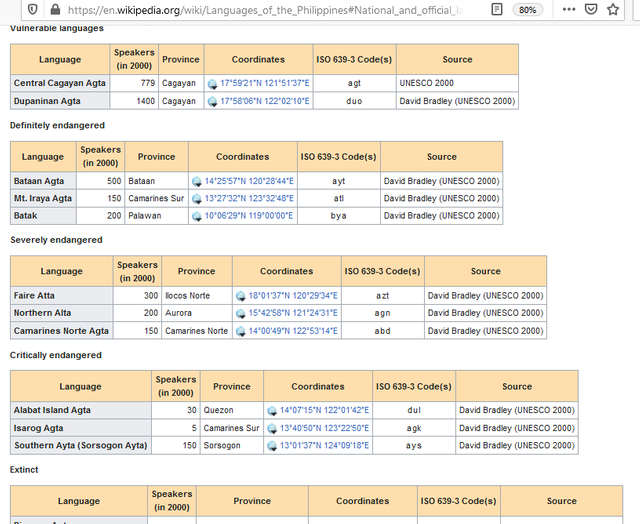
Sad to say as beautiful linguistic diversity is, it is only normal for a language to die.
Sort of sad to see this but it's normal, languages die, some are born via creole or pidgin.
What do you think?
Languages from the same family can be so funny and full of history. Have you experienced miscommunication or funny linguistic encounters with other people when travelling? Let me know!
BACK TO THE MAIN QUESTION:
Language or dialect? Any type of speech uses to communicate is a language. So a dialect and language are both languages.
A dialect is just a language that has not been awarded the prestigious title of a language due to the low population speaking it and the dialect being underdeveloped.
The main difference of a language and dialect, we could say is that a dialect is born out of a mix of two languages. Usually dialects are minor grammatical changes only and spoken in minor regions or cities.
It is not usually an "official" language.
Language is tricky, because some Creoles and pidgins are a mix of Languages which classifies them as a bit less than an original language yet now some are main languages. It is dynamic and evolves and changes through time.
Hope this little post helps! Cheers!
Keep STEEMING!
That's all I got for my little linguistic venture around here.
Thank you for stopping by!
🌍🌎🌏
THE ENVIRONMENT CALLS FOR YOU
HELP SAVE HER ♥️✨🕊️
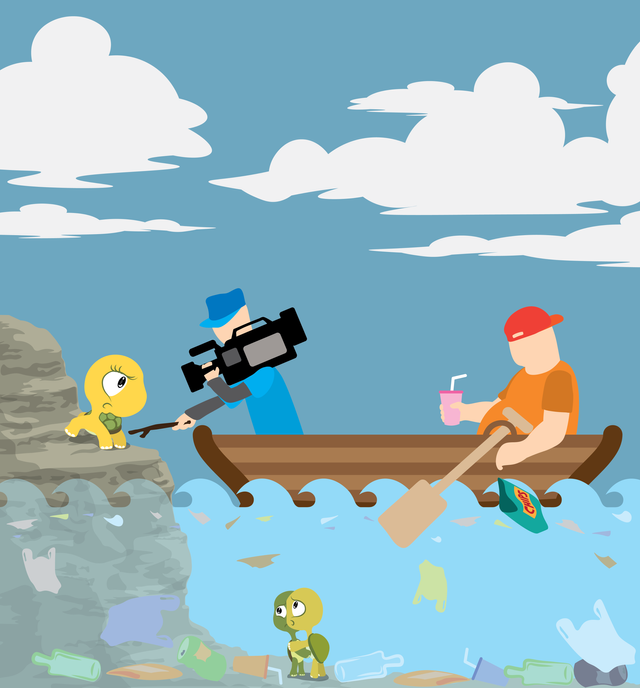
Protecting the Wildlife has never been so essential in the history of humanity as it is now. Bring awareness worldwide!
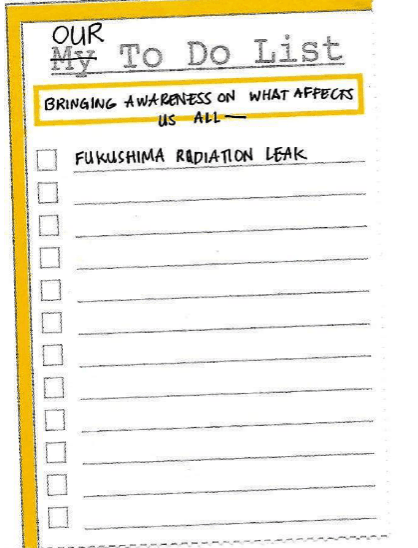
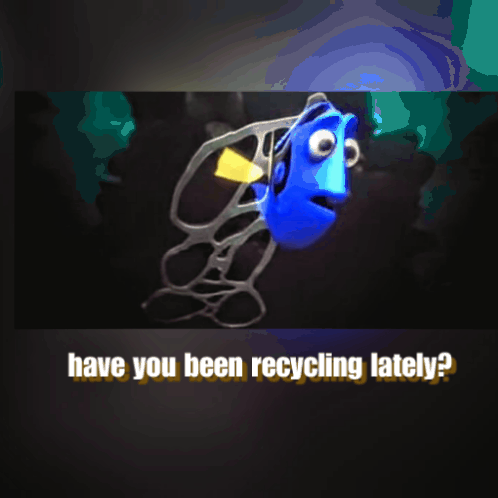


WE DO NOT INHERIT THE EARTH FROM OUR ANCESTORS, WE BORROW IT FROM OUR CHILDREN
🌏🌎🌍
😱IT IS IMPORTANT TO VOTE FOR WITNESSES☝️
I recommend:
@steemgigs
@blocktrades
@precise
@cloh76.witness
@ausbitbank
SOME AWESOME BLOGGERS
You don't want to miss😉
@gems.and.cookies
@anomadsoul
@surpassinggoogle
@topkpop
@hiddenblade
@deveerei
@korinkrafting
@fukumineko
@sethlinson
@mattphilleo
@deemarshall
That's all folks!
XOXO 💋
@jacinta.sevilla



The Steem blockchain is currently being attacked by a central authority in order to take control of the witnesses. If you are not managing your witness votes, please consider setting @berniesanders as your witness voting proxy by clicking here to help restore the decentralization of Steem.